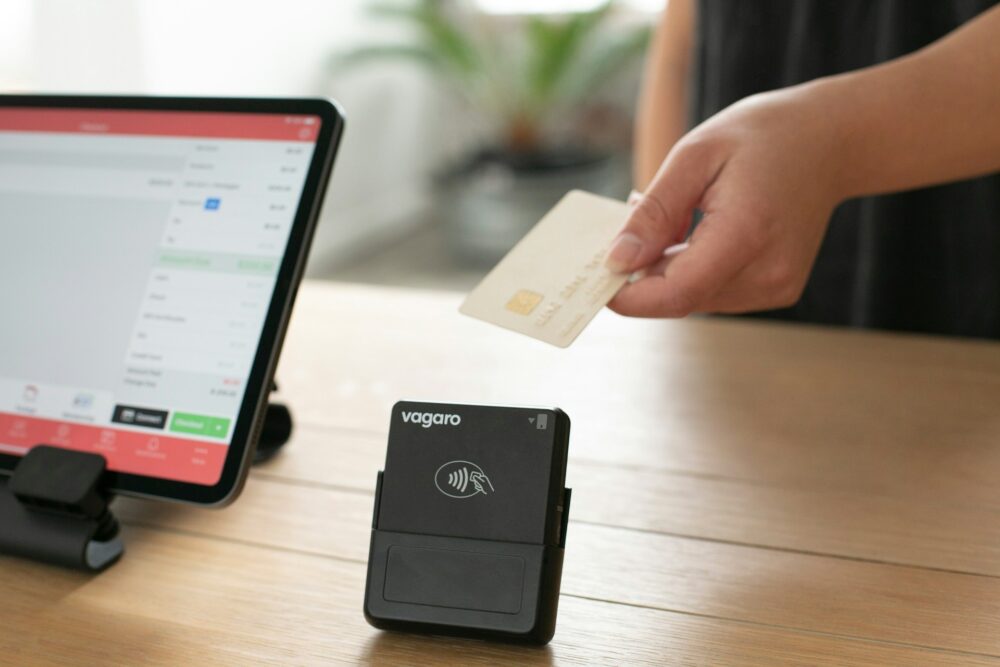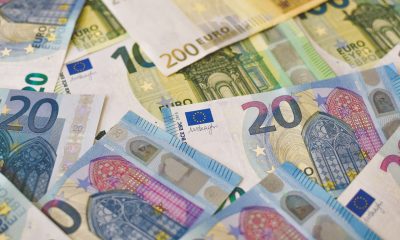Fintech
Nickel Is Considering Diversifying its Offer in Belgium
Nickel offers payment cards linked to a current account in Belgium without traditional banking. With 500 sales points and plans to reach 1,300, the fintech aims to become Belgium’s largest “banking network.” Nickel plans to diversify with Payconiq, youth accounts, small credits, home insurance, and savings products by 2026, expanding its reach and customer base.

For two years, Nickel, a French fintech company, which has made banking inclusion its watchword, has been offering its payment cards linked to a current account in Belgium without going through the “bank” box. Indeed, the fintech comapny boasts 500 points of sale (bookstores, grocery stores, night shops, etc.) with an additional 140 in the process of joining the network.
The objective is still to reach 1,300 points of sale, and thus become the first Belgian “banking network”. However, this ambition does not prevent the BNP Paribas subsidiary from thinking about the next step: diversification .
If the Payconiq application is being implemented, a youth account should appear in early 2025. Finally, after France, an offer of ” small” credits (max 1,000 euros repayable in 3 installments), home insurance and savings (paid or not) is also provided.
“We have until now focused on payment standards like Google Pay or Apple Pay. We are now moving to a more diversified offer,” explained Emmanuel Legras, CEO of Nickel Belgium.
These credit or savings products are expected in Belgium around 2026. The insurance will take a little longer, taking into account the fact that Nickel will adapt the product to the specificities of each market and will, therefore, have to receive the approval of local authorities.
Nickel wants to conquer Belgium
In the meantime, Nickel is pursuing its ambitions in Belgium, both in terms of the number of customers and its presence in the territory. The objective of 300,000 customers by 2027 remains relevant. It should be noted that at the group level, the current 4 million customers should increase to 5.5 million by the same deadline.
With around 270 points of sale in Wallonia compared to around 130 in Flanders , Nickel wants to continue its establishment in the North. “Flanders is a market where we are not known and where the traditional banking sector is well established in habits. It is therefore more complicated than in Wallonia where, with the French proximity, Nickel was already known.”
Emmanuel Legras also praises the advantages for the merchant : attraction and loyalty of new customers, additional income thanks to commissions on account openings and renewals and on operations. “In Belgium, we have an average annual commission of 2,000 euros compared to 6 to 7,000 euros in France, or even more than 40,000 in high-density areas.”
No freebies for customers
Conversely for the customer, Nickel recognizes, she has never advocated free service . The account, linked to a simple Mastercard debit card , costs 20 euros per year with 3 free withdrawals per month (50 cents thereafter), a cost of 2% of the amount when making deposits. The premium card (50 euros per year) allows free withdrawals, deposits and access to currencies abroad. Finally, the Metal card (100 euros per year), subscribed to by 10% of customers, provides free of charge for all operations in Belgium and abroad.
In terms of customers, Nickel is reaching more and more pensioners , in particular thanks to the agreement reached with the pensions service which now recognizes the IBAN codes issued by Nickel. These IBAN codes, remember, are Belgian IBANs although Nickel is a subsidiary of the French group BNP Paribas.
Nickel vs bpost Bank
Nickel therefore wants to be a “non-bank” . This criterion therefore differentiates it from bpost bank, now also within the fold of BNP Paribas. Both bpost and Nickel offer a basic banking service through an extensive network.
However, Nickel is a solution offered to vulnerable customers struggling to open an account in the traditional banking sector, and therefore also at bpost.
__
(Featured image by Vagaro via Unsplash)
DISCLAIMER: This article was written by a third party contributor and does not reflect the opinion of Born2Invest, its management, staff or its associates. Please review our disclaimer for more information.
This article may include forward-looking statements. These forward-looking statements generally are identified by the words “believe,” “project,” “estimate,” “become,” “plan,” “will,” and similar expressions. These forward-looking statements involve known and unknown risks as well as uncertainties, including those discussed in the following cautionary statements and elsewhere in this article and on this site. Although the Company may believe that its expectations are based on reasonable assumptions, the actual results that the Company may achieve may differ materially from any forward-looking statements, which reflect the opinions of the management of the Company only as of the date hereof. Additionally, please make sure to read these important disclosures.
First published in L’Echo. A third-party contributor translated and adapted the article from the original. In case of discrepancy, the original will prevail.
Although we made reasonable efforts to provide accurate translations, some parts may be incorrect. Born2Invest assumes no responsibility for errors, omissions or ambiguities in the translations provided on this website. Any person or entity relying on translated content does so at their own risk. Born2Invest is not responsible for losses caused by such reliance on the accuracy or reliability of translated information. If you wish to report an error or inaccuracy in the translation, we encourage you to contact us.

-

 Fintech4 days ago
Fintech4 days agoRuvo Raises $4.6M to Power Crypto-Pix Remittances Between Brazil and the U.S.
-

 Cannabis2 weeks ago
Cannabis2 weeks agoCannabis and the Aging Brain: New Research Challenges Old Assumptions
-

 Biotech1 day ago
Biotech1 day agoEurope’s Biopharma at a Crossroads: Urgent Reforms Needed to Restore Global Competitiveness
-

 Crowdfunding1 week ago
Crowdfunding1 week agoAWOL Vision’s Aetherion Projectors Raise Millions on Kickstarter
























